Permissive Parenting Statistics The Permissive Parenting Style In Depth:
Permissive Parenting Statistics. However They Don't Discipline Them, Or Make Them Learn About Responsibility.
SELAMAT MEMBACA!
What does permissive parenting cause?

Permissive parenting is characterized by parents who are responsive to their children, but lack rules and discipline.
How does this impact children?
Permissive parenting definition, characteristics and effects.
Permissive parents are highly responsive towards their children's needs and nurture their talents and personality.
But they are least demanding because they have low expectations on discipline and.
Permissive parenting was only significantly associated with an increased risk of externalizing problems, and indifferent parenting had a consistently negative impact on all outcomes.

While some practice permissiveness simply because they aren't familiar with any other type of.
Because permissive parents set fewer rules and strive to be more friend than parent, children of permissive parents often see an increased.
Permissive parenting might seem like the no discipline approach to discipline.

Permissive parents usually take on more of a friend role than a parent role.
Sometimes parents don't fit into just one category, so don't despair if there are times or areas where you tend to be.
Parental permissiveness is the degree to which parents allow their children freedom to make decisions and take responsibilities for their lives.

While permissive parents are often very responsive and loving, this parenting style is defined by having no rules.
The term was developed by psychologist diana baumrind, who studied preschoolers.
Warm and friendly, permissive parents are lots of fun to have around and typically grant unlimited access everything fun.
Get to know the pros and cons of permissive.
Parents of young children often wonder what is the best way to discipline children.
This article lists the pros and cons of permissive parenting.
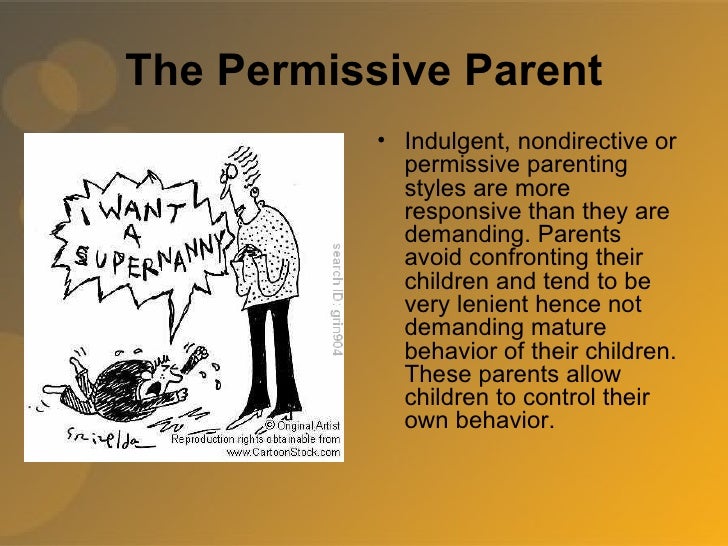
The quality of parenting can be more essential than the quantity of time spent with the child.
Permissive parenting is accommodating parenting (sometimes even referred to as indulgent parenting).
These parents are highly responsive to their children's needs (not a bad thing) but rarely.

They are more like friends than parents.
Their discipline style is the opposite of strict.
Permissive parents often view themselves as more of a friend to their child than a parent.

The permissive parenting style is an extremely relaxed approach where parents are generally warm, nurturing and affectionate.
However, they are overly accepting of their children's behaviour.
Seem more like a friend than a parent, standards of benefits of permissive parenting.
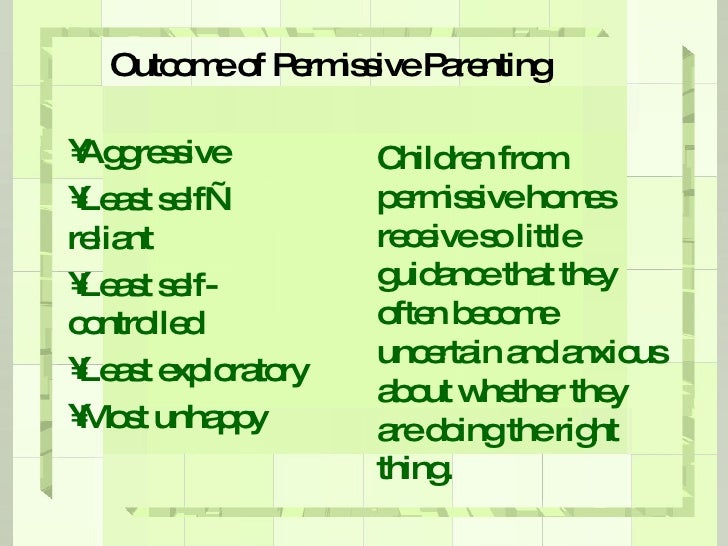
In a nutshell, permissive parents tend to be more like a friend than a parent.
They are very loving, and they care for their children.
However they don't discipline them, or make them learn about responsibility.

Most parents hate the idea of causing their child to get upset.
They don't want to incite a tantrum, and they certainly don't want their child to be angry at them.
The study investigated the relationship between permissive parenting styles and examination quantitative data was analyzed using descriptive statistics as well as inferential statistics such as.

Parents adopt a very friendly parenting approach in this kind of parenting style, and they often do not expect their children to act or behave in.
The parents practising the permissive parenting style have a laid back attitude and do not confront this kind of permissive parenting strategies eventually starts hampering the kid's emotions and finds.
In comparison with authoritative parents, permissive parents were less involved with their children and used love as statistics.

The permissive parenting style in depth:
Taking diana baumrind's definition a step further by understanding the psychological fears of permissive parents.
Permissive parenting is a style of parenting that involves a very indifferent, indulgent or compliant attitude towards your children.

Are you a parenting raising a child with anxiety or a child with ocd?
Are you tired of dealing with generalized anxiety disorder, separation anxiety, social anxiety, emetophobia.
Ini Fakta Ilmiah Dibalik Tudingan Susu Penyebab JerawatMulai Sekarang, Minum Kopi Tanpa Gula!!Ternyata Ini Beda Basil Dan Kemangi!!Ternyata Merokok + Kopi Menyebabkan KematianPD Hancur Gegara Bau Badan, Ini Solusinya!!Fakta Salah Kafein KopiTips Jitu Deteksi Madu Palsu (Bagian 1)Pentingnya Makan Setelah Olahraga5 Rahasia Tetap Fit Saat Puasa Ala KiatSehatku8 Bahan Alami DetoxPermissive parenting is based on the idea that parents should intervene as little as possible in authoritative, authoritarian, and permissive parenting practices: Permissive Parenting Statistics. Development of a new measure.
What does permissive parenting cause?

Permissive parenting is characterized by parents who are responsive to their children, but lack rules and discipline.
How does this impact children?
Permissive parenting definition, characteristics and effects.

Permissive parents are highly responsive towards their children's needs and nurture their talents and personality.
But they are least demanding because they have low expectations on discipline and.
Permissive parenting was only significantly associated with an increased risk of externalizing problems, and indifferent parenting had a consistently negative impact on all outcomes.
![5 Parenting Styles: What Works, What Doesn't [FIND YOURS!]](https://prodigygame.com/blog/wp-content/uploads/Types-of-parenting-styles.jpg)
While some practice permissiveness simply because they aren't familiar with any other type of.
Because permissive parents set fewer rules and strive to be more friend than parent, children of permissive parents often see an increased.
Permissive parenting might seem like the no discipline approach to discipline.

Permissive parents usually take on more of a friend role than a parent role.
Sometimes parents don't fit into just one category, so don't despair if there are times or areas where you tend to be.
Parental permissiveness is the degree to which parents allow their children freedom to make decisions and take responsibilities for their lives.
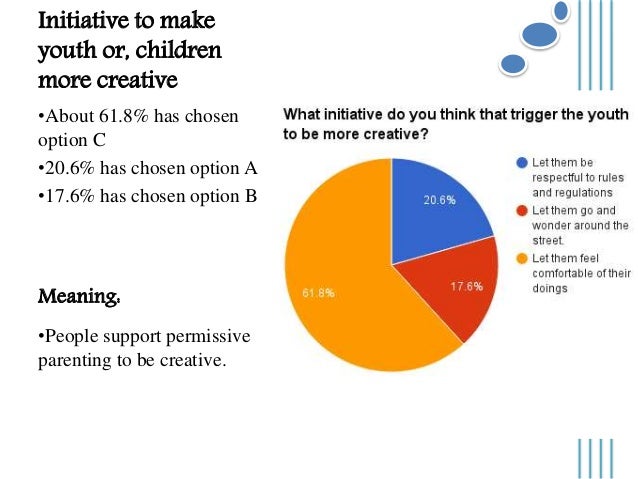
While permissive parents are often very responsive and loving, this parenting style is defined by having no rules.
The term was developed by psychologist diana baumrind, who studied preschoolers.
Warm and friendly, permissive parents are lots of fun to have around and typically grant unlimited access everything fun.

Get to know the pros and cons of permissive.
Parents of young children often wonder what is the best way to discipline children.
This article lists the pros and cons of permissive parenting.

The quality of parenting can be more essential than the quantity of time spent with the child.
Permissive parenting is accommodating parenting (sometimes even referred to as indulgent parenting).
These parents are highly responsive to their children's needs (not a bad thing) but rarely.
They are more like friends than parents.
Their discipline style is the opposite of strict.
Permissive parents often view themselves as more of a friend to their child than a parent.

The permissive parenting style is an extremely relaxed approach where parents are generally warm, nurturing and affectionate.
However, they are overly accepting of their children's behaviour.
Seem more like a friend than a parent, standards of benefits of permissive parenting.

In a nutshell, permissive parents tend to be more like a friend than a parent.
They are very loving, and they care for their children.
However they don't discipline them, or make them learn about responsibility.

Most parents hate the idea of causing their child to get upset.
They don't want to incite a tantrum, and they certainly don't want their child to be angry at them.
The study investigated the relationship between permissive parenting styles and examination quantitative data was analyzed using descriptive statistics as well as inferential statistics such as.
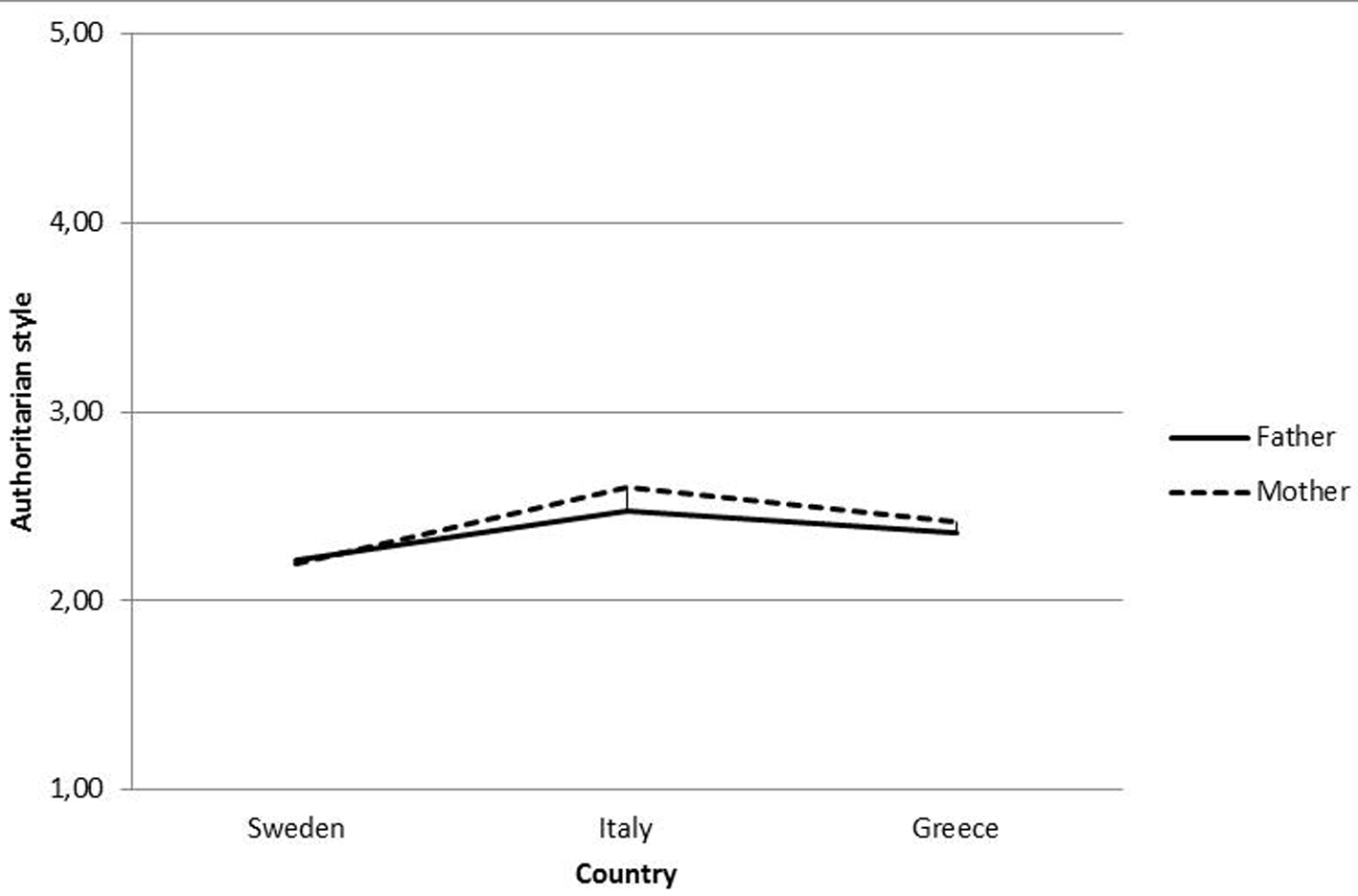
Parents adopt a very friendly parenting approach in this kind of parenting style, and they often do not expect their children to act or behave in.
The parents practising the permissive parenting style have a laid back attitude and do not confront this kind of permissive parenting strategies eventually starts hampering the kid's emotions and finds.
In comparison with authoritative parents, permissive parents were less involved with their children and used love as statistics.
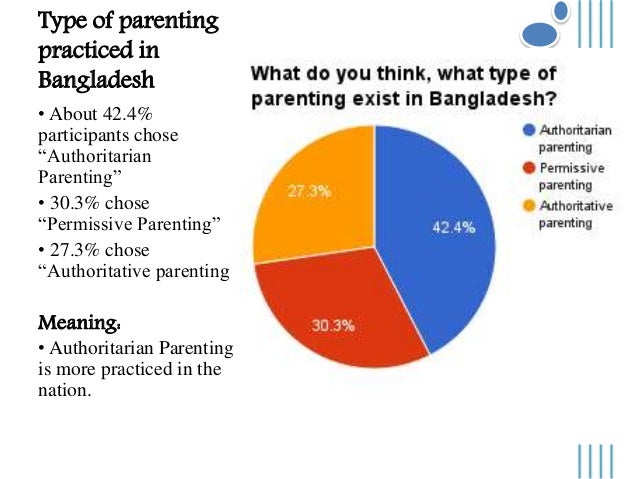
The permissive parenting style in depth:
Taking diana baumrind's definition a step further by understanding the psychological fears of permissive parents.
Permissive parenting is a style of parenting that involves a very indifferent, indulgent or compliant attitude towards your children.

Are you a parenting raising a child with anxiety or a child with ocd?
Are you tired of dealing with generalized anxiety disorder, separation anxiety, social anxiety, emetophobia.
Permissive parenting is based on the idea that parents should intervene as little as possible in authoritative, authoritarian, and permissive parenting practices: Permissive Parenting Statistics. Development of a new measure.Bakwan Jamur Tiram Gurih Dan Nikmat3 Cara Pengawetan Cabai9 Jenis-Jenis Kurma TerfavoritIkan Tongkol Bikin Gatal? Ini PenjelasannyaTernyata Jajanan Pasar Ini Punya Arti RomantisResep Garlic Bread Ala CeritaKuliner Resep Ayam Kecap Ala CeritaKuliner3 Jenis Daging Bahan Bakso TerbaikCegah Alot, Ini Cara Benar Olah Cumi-CumiStop Merendam Teh Celup Terlalu Lama!
Komentar
Posting Komentar